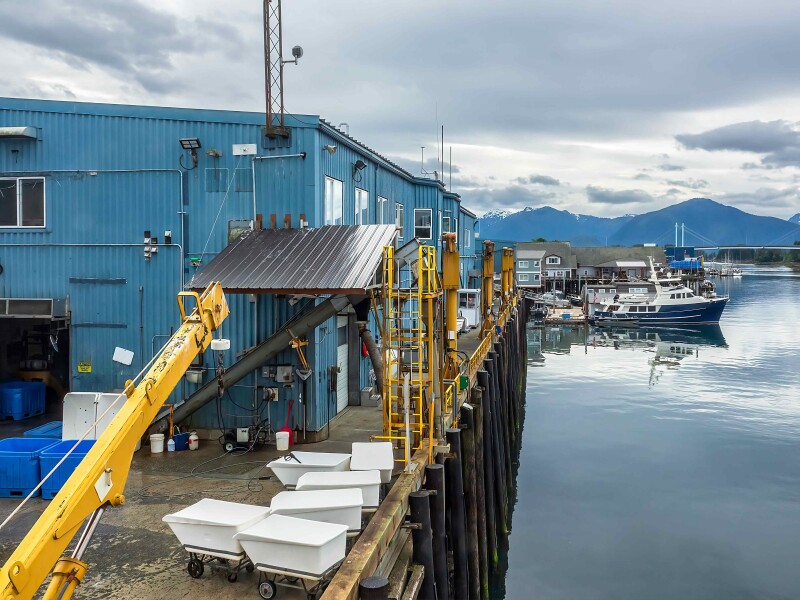U.S. Secretary of Commerce Howard Lutnick has agreed to meet with Alaska’s seafood leaders to discuss trade threats and industry support, following a pointed exchange with Sen. Lisa Murkowski (R-Alaska) during a June 2025 Appropriations Subcommittee hearing.
“Russia has declared war on Alaska seafood,” Murkowski said at the hearing, “and they have been very direct, and very open about it. They are using their dominance in the seafood market to help fund their war against Ukraine.”
Murkowski, a senior member of the Committee on Appropriations, emphasized the urgent economic and security concerns facing Alaska’s fisheries. “I had an opportunity, just yesterday, to visit with one of our seafood industry leaders in the state of Alaska. I thought we were going to be talking about some of the tax provisions that are included in the reconciliation package, but he basically said if we can’t deal with trade issues when it comes to Alaska’s seafood, we are not even going to have to worry about the tax pieces because the trade implications are going to kill us.”
During the hearing, Murkowski asked Lutnick directly, “I would ask for your commitment to sit down with leaders of the Alaska seafood industry, those important stakeholders, so that we can talk about a path forward on some of these issues that are really harming our industry right now. Can you give me that commitment, that we can work with your team to identify a time to do just that?”
Lutnick responded with, “Why don’t you organize it, and it would be my pleasure to come and do it together with you, so we can make sure every topic is on the table, and we address it. Because our trade policy is to protect our fisherman, which are a key resource of the United States of America. We are on it and we know about it, I know all about the Russian issues.”
The commitment follows earlier promises Lutnick made to Sen. Dan Sullivan (R-Alaska) during his confirmation, where he pledged to support the Trump Administration’s “Unleashing Alaska’s Extraordinary Resource Potential” Executive Order. The order focuses on developing the state’s seafood industry, creating high-quality jobs, and safeguarding against foreign powers, such as Russia, from weaponizing supply chains.
“For more than a decade, Russia has been implementing policies that take direct aim at Alaska’s fishing sector,” Expana noted, as shared by a Pacific Seafood Processors Association (PSPA) email. “In 2014, the country banned U.S. seafood imports, cutting off a $60 million market for Alaska fishermen.” Sullivan led a years-long campaign to secure broad U.S. sanctions on Russian-harvested seafood, which were fully implemented in 2024.
Murkowski has emphasized time and time again the industry’s central role in the state’s economy, “We’ve got the largest federal fisheries in the nation, about sixty percent of America’s harvest by volume. Seafood processing is 70 percent of Alaska’s manufacturing employment. The Alaska seafood industry generates $6 billion in economic output for that state, it employs 48,000 people in Alaska.”
The conversation turned to other resource and safety issues, including NOAA staffing and infrastructure challenges. Murkowski highlighted a 40 percent staffing shortage at NOAA and urged the Secretary to take a critical look at its impact on Alaska. “We need them to stay operational, so if you can just commit to me that you’ll look at?”
Murkowski also raised concerns about safety and the Seal Rocks Weather Buoy. Vessels must transport oil by ship out of Valdez and through Prince William Sound, and these tankers rely on the National Data Buoy Center to manage this process. “Right now, we have a buoy, the Seal Rocks Weather Buoy, that’s right outside of Valdez. But the tankers can’t leave Valdez unless they get the wave height information from the buoy, the weather buoy that’s sitting out there, right? This buoy has been out of commission for months, and we’re told it’s due to funding for operation and maintenance in NOAA’s budget.”
Murkowski noted that the problem isn’t just the buoy at Seal Rock; it is the system in place to be the information source and the protector of safety, and asked Lutnick to address this issue. “In the meantime, we’re going to get them operational, so that we’re not compromising safety,” Murkowski stated at the end of the safety conversation.
Lutnick agreed with Murkowski and promised to look into these issues that are front and center in Alaska.







